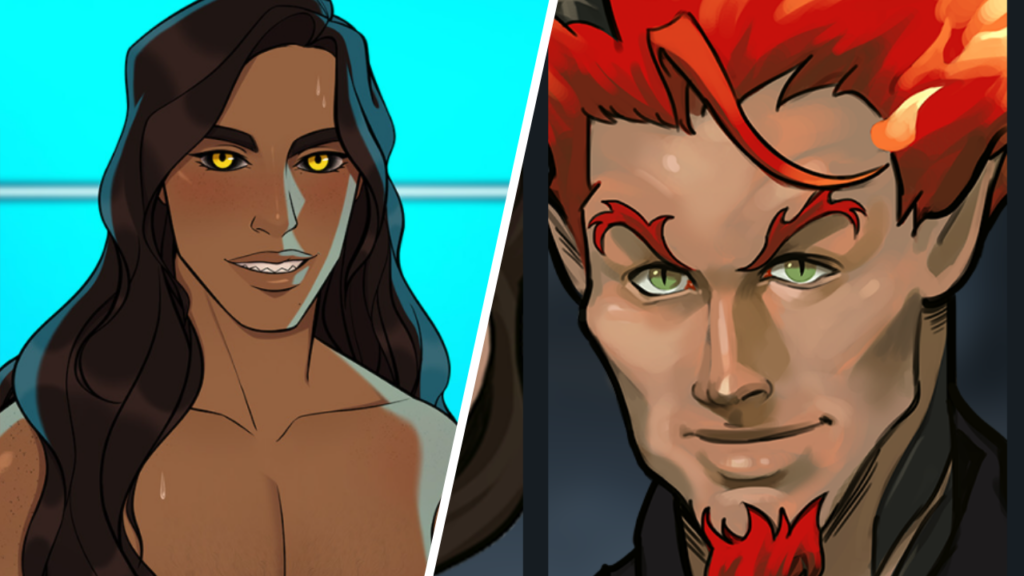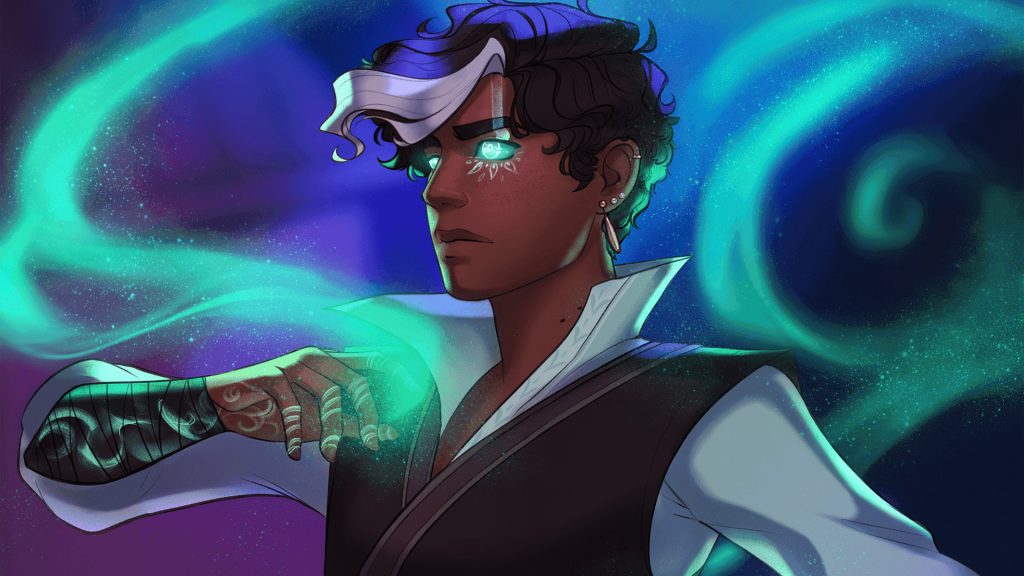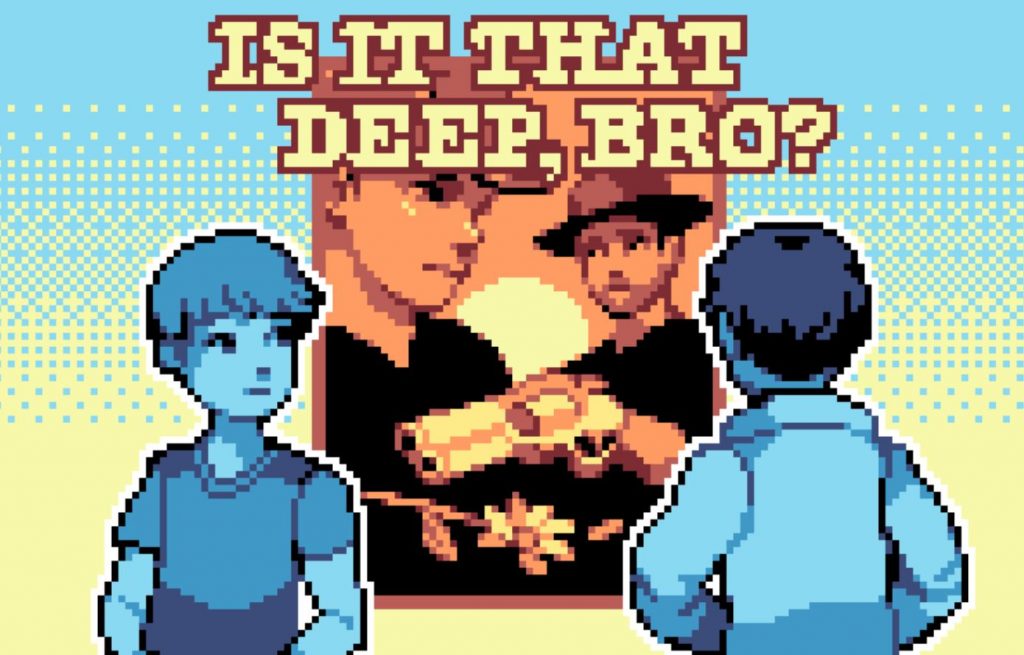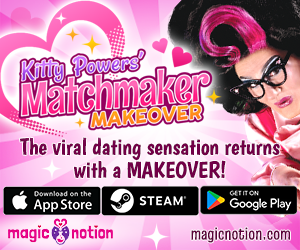
How indie game devs are using games to explore their queer identity
Making a game is an act of creation. Because of this, it can be an act of exploration as well, which means fostering and diving directly into one’s queerness through game development is happening more and more.
Take Kristi Jimenez, aka HusbandoGoddess, for example. As a visual novel streamer and game developer, she noticed a significant lack of asexual representation in the games she played on stream.
“I can count on one hand how many characters featured an asexual love interest: which [was] one,” She tells Gayming Magazine. As someone who is asexual, Kristi explains that she wants to see herself “reflected in the games” she plays. That’s why she’s currently developing a romance game about an asexual male detective, one who falls for an interesting woman over the course of the story. Her other games tell stories of trans, gay, and queer people as well, and she wants nothing more than to “tell impactful, emotional stories.”
Kris Wise, the founder of Lunaris Games, also wants to express their queer identity in their work as an indie game developer. “Our whole team is queer, and our goal is to continue to make games that represent us and our players by creating worlds and characters where queerness is built into the fabric of our universes as a whole.”
In other words, Lunaris Games used and continues to use game development to create a world where queerness is simply the norm. Once Wise’ team started creating games, the response from players was clear. “We quickly discovered that there was a hunger for the kind of content we were putting out,” explains Wise.
Development quickly became a priority for Lunaris Games so they could create the representation people were craving. Put simply, Lunaris Games’ projects explore a world where queerness is not the strange, but the norm, and thus fosters the acceptance of queerness.

Jaime, the founder of Jaime Scribbles Games, was affected by romance visual novels’ lack of queer representation from very early on. With Pinewood Island, Jaime Scribbles Games’ first project, Jaime explains that it didn’t occur to her she could include female romance options, as she hadn’t seen that kind of representation in other games. Once players mentioned that they had wanted to romance Pinewood Island’s female side characters, Jaime realized that showing her queerness would be possible in later titles and that she could express her own bisexuality through her games’ stories. With this in mind, her later games included a diverse array of queer romance options and side characters.
However, changing Jaime Scribbles Games’ focus from heterosexual romance (Pinewood Island) to queer romance (later titles) did come with a bump in the road. “When As We Know It [Jaime Scribbles Games’ second project] was released, I wasn’t allowed to promote it on the Otome Subreddit as I had ‘too many’ female romance options”. In other words, a rather large community for promoting romance games was pushing away a queer developer. In Jaime’s words, “I was shocked to find that I was being pushed out of a space I had thought I belonged in, all because of my queerness. I really struggled to feel at home in the otome community after that.” Because of this, Jaime Scribbles Games’ latest project, In Blood, was designed to have a single female romance path in order to avoid such exclusion again. This is reflected on the game’s itch.io page, which lists the game as having 3 male and 1 female romance options.

However, now Jaime is determined to carve out her own space and fully express her queerness in future games. She plans to increase queer representation within my content overall, and turn that bump in the road into a strength. In recent years, Jaime also discovered the Amare community, which is a community of romance game developers that openly embraces queerness. It’s expected that her future games will keep showcasing her queerness, and have a great variety of romance options.
moaw and Madeline Cavegift are two of the main developers behind is it that deep, bro?, a visual novel about two teens watching a gay western film, with one of the boys in question being a closeted gay teen. One of the first things moaw told us is that they often discover their “implicit expressions of queerness through the process of art-making and game development”, meaning, their games are a clear way of fostering their own queer identity. “Researching for creative works often begins with questions that I don’t realize the intent of,” and so, game development becomes a way to answer those questions.
For Madeline, is it that deep, bro? talks about the questions it had about itself as a young person, “as a young, closeted gay teen boy (as far as I knew at the time, at least.) I found myself holding feelings that I couldn’t entirely explain, and didn’t have words for”. That inability to express one’s queerness, which is directly from Madeline’s experience, went straight into the narrative design of is it that deep, bro?.
All of these developers used their games to develop, foster, and showcase their own queerness – and they encourage you to do the same. “If you’re a member of the LGBTQIA+ community and you want to create games, my advice to you is: do it. Fill this world with your beautiful creativity and let your pride be known to the world!” says Jiminez.
“Make something gross and messy and kind of broken that your straight friends will hate. If we don’t, no one will,” says Madeline.
Make that queer game, express yourself, and bring your queerness out there.





